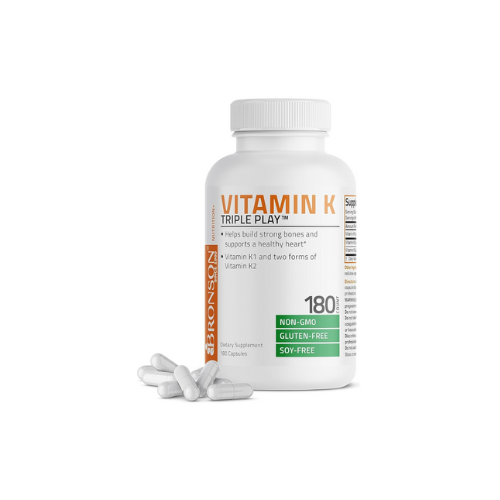Sauerkraut Carnivore Diet
Integrating Fermented Foods for Optimal Health
The carnivore diet, centered on consuming animal products exclusively, has gained traction among those seeking a simplification of dietary choices and a return to a more ancestral way of eating. This diet's emphasis on meats, particularly red meat (What wine goes well with red meat?), fish, and poultry, often excludes plant-derived foods, under the premise that human digestion is better suited to animal proteins and fats. However, discussions have emerged regarding the inclusion of select plant-based items to address potential gaps in nutrition and to add variety to the diet.
Sauerkraut, a fermented cabbage dish, emerges as an interesting point of discourse within the carnivore community. Despite its plant origins, sauerkraut offers a suite of benefits that may complement the carnivore diet. Rich in probiotics, it facilitates digestive health, which can be beneficial for individuals adapting to a high-meat diet. Moreover, sauerkraut provides Vitamin C, a nutrient that might otherwise be less abundant in a strictly carnivorous regimen.
While strict adherence to the carnivore diet would traditionally exclude sauerkraut, some proponents consider it an acceptable addition. The rationale is rooted in historical consumption of fermented foods and the potential health benefits they confer. It prompts a reevaluation of what could constitute an "ancestrally appropriate" diet, taking into account not only the choice of foods but their preparation methods as well.
Understanding the Carnivore Diet
The carnivore diet prioritizes animal-based foods and is gaining attention for its purported health benefits and simplicity. It excludes plant-based foods and emphasizes meat, fish, eggs, and certain dairy products.
Core Principles
Exclusivity of Animal-Based Foods: The primary focus is on consuming meat, fish, eggs, and selected dairy products.
Elimination of Plant-Based Foods: This diet excludes all vegetables, fruits, nuts, grains, and legumes.
Simplicity: It is simple in its approach, emphasizing a single food group – animal products.
Health Benefits and Concerns
Health Benefits:
Weight Loss: Many individuals report quick weight loss as the diet is low in carbohydrates.
Reduction in Inflammation: Anecdotal evidence suggests reduced inflammation, particularly for those with autoimmune conditions.
Heart Health: Some proponents believe that focusing on animal products may improve heart health by reducing certain risk factors.
Health Concerns:
Nutrient Deficiencies: Solely consuming animal products could lead to a lack of essential nutrients found in plants.
Heart Health Risks: There is ongoing debate about the long-term impact on heart health due to high saturated fat intake.
Autoimmune Reactions: Dairy products, which are included in some carnivore diets, may provoke autoimmune reactions in sensitive individuals.
Common Foods and Exclusions
Commonly Included:
Meat: Beef, lamb, pork, organ meats, and other red meats are staples.
Fish: A variety of fish varieties provide omega-3 fatty acids.
Eggs: High in protein and nutrients, eggs are a core component of the diet.
Dairy: Select dairy products like cheese and butter are included based on individual tolerance.
Commonly Excluded:
All plant-based foods: Including but not limited to vegetables, fruits, grains, nuts, seeds, and legumes.
Processed Foods: Even if animal-based, processed foods are typically avoided for their additives and low nutritional value.
Role of Fermented Foods
Integrating fermented foods into a carnivore diet can yield benefits for digestion and immune system health due to the presence of probiotics. These foods enhance nutrient absorption and offer a biological complexity to a meat-focused dietary pattern.
Benefits of Fermentation
Fermented foods undergo a metabolic process where natural bacteria feed on the sugar and starch in the food, creating lactic acid. This process not only preserves the foods but also creates beneficial enzymes, b-vitamins, and various strains of probiotics which are crucial for maintaining good gut health. The presence of these probiotics may reduce inflammatory responses within the body.
Probiotics: These are live beneficial bacteria created during fermentation.
Gut Health: Fermentation positively influences the intestinal flora.
Sauerkraut in a Carnivore Diet
Sauerkraut, a fermented cabbage, is a noteworthy addition to the carnivore diet for its high vitamin C content which is essential for one's immune system. Unlike some fermented plant foods, sauerkraut does not contain sugar additives, aligning well with the carnivore diet principles.
Vitamin C: Critical for immune health and found in sauerkraut.
Sauerkraut: Provides a source of fiber and probiotics on a carnivore diet.
Other Fermented Animal Products
While plant-based fermented foods like sauerkraut and kimchi are often discussed, animal-based fermented products like yogurt and kefir also offer probiotics and can fit into a carnivore diet. These products can be especially beneficial as they contain natural fats and proteins along with the health benefits of fermentation.
Yogurt: A dairy product rich in probiotics.
Kefir: A fermented milk drink with a diverse array of probiotics.
Nutrition and Supplementation
The incorporation of sauerkraut into a carnivore diet can offer a source of essential nutrients often lacking in a meat-exclusive regimen. Here's how sauerkraut contributes to nutritional completeness when paired with a carnivore diet.
Vitamins and Minerals
Sauerkraut is rich in Vitamin C, providing about 23% of the daily value, which is pivotal for immune function and iron absorption. Additionally, it's a source of Vitamin K, essential for blood clotting, and may include trace amounts of potassium and magnesium, which support nerve function and cardiovascular health.
Online stores offer unbeatable prices for vitamin C, vitamin K, potassium, and magnesium, so don't miss out!
Fatty Acids and Proteins
While the carnivore diet supplies ample fatty acids and proteins from meat, sauerkraut does not contribute significantly in these areas. However, its probiotic content can support digestion, potentially improving the assimilation of these macronutrients.
Balancing Nutritional Needs
A balanced approach to the carnivore diet that includes sauerkraut can help mitigate potential shortfalls in fiber and antioxidants. Sauerkraut contains fiber that aids in digestive health, despite being low compared to other plant foods. Its fermentation process also leads to the formation of certain antioxidants, which play a role in cellular protection.
Preparation and Cooking
Incorporating sauerkraut into a carnivore diet involves careful selection of meat, understanding the fermentation process, and paying attention to seasoning to achieve optimal flavor. This section explores sauerkraut in relation to various animal-based foods and provides guidance on how to prepare dishes that align with a carnivore diet while incorporating this fermented food.
Sauerkraut as a Dish Component
Sauerkraut can be used as a tangy accompaniment or a key ingredient in a variety of animal-based dishes. When preparing sauerkraut to accompany meats, chefs should ensure that it is thoroughly heated without being overcooked, which may cause it to lose some of its probiotic benefits. It can be gently warmed in a pan over medium heat or added to a meat dish just before serving.
Beef: A slow-cooked beef brisket can be enhanced by topping it with warmed sauerkraut in the final minutes of cooking, allowing the flavors to meld.
Pork: Sauerkraut pairs classically with pork, complementing dishes such as a skillet-cooked pork chop.
Shellfish: For a twist, one could top a seared scallop with a spoonful of sauerkraut.
Discover the endless possibilities of buying slow cooker online!
Animal-Based Food Recipes
Recipes focusing on red meat, poultry, and fish are commonly found within a carnivore diet, and sauerkraut can be integrated into these meals.
Chicken: A roasted chicken breast may be stuffed with sauerkraut and herbs before baking to infuse the dish with moisture and flavor.
Lamb: A leg of lamb can be slow-roasted with a crust of herbs and topped with sauerkraut to serve.
Liver: Pan-fried liver benefits from the addition of sauerkraut, which can cut through the richness of the organ meat.
Seasonings and Flavoring
Seasonings and flavoring play a pivotal role in elevating the taste of animal-based ingredients while ensuring that sauerkraut's flavors are well-integrated into the dish.
Black Pepper: A reliable and simple seasoning, black pepper adds a heat element that works with the tangy taste of sauerkraut.
Herbs: Incorporating fresh herbs like dill or parsley with sauerkraut can add a dimension of freshness and complement red meats or poultry.
Flavor: If sauerkraut's flavor is overpowering, it can be balanced by using milder tasting animal proteins like chicken or by adding fats like butter.
When using sauerkraut in recipes, chefs should be mindful of its bold flavor and how it interacts with the natural tastes of the meat. Choosing the right seasonings, such as fresh herbs and black pepper, and understanding the characteristics of the chosen proteins, like the robustness of beef or the delicacy of shellfish, will result in a dish that is both flavorful and cohesive with the carnivore diet ethos.
Sauerkraut and Gut Health
Sauerkraut, a fermented cabbage dish, has been linked to numerous health benefits, particularly concerning gut health. It is a source of probiotics and has a role in the maintenance of a healthy gut microbiome, potentially easing digestive issues.
Probiotics and the Gut Microbiome
Probiotics are living microorganisms that, when consumed in adequate amounts, confer health benefits to the host. Sauerkraut is rich in probiotics due to its fermentation process. These probiotics help in:
Balancing the gut microbiome
Boosting immune function
Digestive Issues and Solutions
Regular consumption of sauerkraut may mitigate common digestive issues, such as bloating and irregular bowel movements. Its benefits include:
Enhancing nutrient absorption
Reducing anti-nutrients in food
Fermented Foods Impact
Fermented foods like sauerkraut undergo a metabolic process where natural bacteria feed on the sugar and starch in the food creating lactic acid. This process:
Preserves the food, and creates beneficial enzymes, b-vitamins, Omega-3 fatty acids, and various strains of probiotics
Improves the overall nutritional content of the food
Incorporating Plant Foods
The carnivore diet traditionally excludes plant-based foods, but the incorporation of certain plant items such as fermented foods may offer nutritional variety and digestive benefits.
The Debate on Plant Inclusion
The carnivore diet is grounded in the consumption of primarily animal products, yet there is a debate around the inclusion of plant foods. Proponents argue for a strict adherence to meat, fish, eggs, and dairy to maintain the diet's integrity, while others suggest that adding specific plant foods can enhance the diet’s nutritional profile. Fermented vegetables like sauerkraut, which are rich in probiotics, are often considered suitable additions due to their beneficial effects on gut health and digestion. They contain minimal sugars and can offer an improved micronutrient spectrum without significantly altering the diet’s core principles.
Choosing Plant Foods Carefully
When selecting plant foods to add to a carnivore diet, one should choose options that complement the nutrient density of the animal products. Here are concise guidelines:
Veggies: Opt for organic, non-starchy vegetables to minimize carbohydrate intake. Good examples include fermented items like pickles and sauerkraut.
Fruits: If fruits are included, berries such as strawberries or blueberries are preferable due to their lower sugar content and antioxidant properties.
High Fiber: Incorporate plant foods that are naturally high in fiber, which may aid in digestion. Vegetables such as leafy greens can be beneficial in small amounts.
It is essential that these plant foods do not replace the primary focus on animal products within the diet. The choice to include plants should be made judiciously, ensuring they are organic and minimally processed, like cucumber for pickles or onions for additional flavoring.
Lifestyle Considerations
Incorporating sauerkraut into a carnivore diet requires thoughtful lifestyle considerations to maintain social harmony, achieve long-term health benefits, and ensure the diet fits personal needs and preferences.
Adapting to Social Settings
Individuals choosing to blend sauerkraut with a carnivore diet may face challenges in social situations where plant-based foods are not typically served. They need to plan ahead when attending social events by communicating dietary preferences or bringing their own sauerkraut-containing dishes to share.
Long-Term Sustainability
For long-term adherence to a carnivore diet that includes sauerkraut, individuals should monitor their health parameters regularly. This helps ensure that weight loss, if desired, is achieved without compromising their overall well-being. They must consider potential health issues or restrictions, like allergies to certain fermented foods.
Flexibility and Personalization
One's approach to a carnivore diet with sauerkraut should be flexible and personalized. They may adjust portions to suit their weight loss goals, or if they experience any adverse reactions, they can tweak the diet to accommodate. Every individual needs to find a balance that supports their health while adhering to their dietary choices.
Sauerkraut Varieties and Brands
When considering sauerkraut options, consumers face a choice between the traditionally crafted homemade versions and a variety of store-bought brands. It is important to examine the quality, ingredients, and fermentation process to ensure the sauerkraut aligns with carnivore dietary preferences, avoiding added sugars and preservatives.
Homemade vs. Store-Bought
Homemade sauerkraut provides full control over the ingredients, allowing for a purely fermented product without unwanted additives. Homemade varieties are often unpasteurized, retaining more live probiotics beneficial for gut health. However, preparing sauerkraut at home requires time and care to avoid contamination.
Store-bought sauerkraut offers convenience and consistent quality. Consumers should look for brands that specify "unpasteurized" on the label to ensure the presence of live cultures. Many reputable brands manage to avoid using added sugars or preservatives while still achieving a rich, tangy flavor preferred by carnivore dieters.
Recommended Brands
Cleveland Kitchen: Known for their fermented foods, they produce a sauerkraut that's non-GMO, gluten-free, and packed with probiotics. Their products are also noted for not containing artificial preservatives.
Unpasteurized: Yes
Added Sugar: No
Preservatives: No
Bubbies Sauerkraut: Bubbies is another respected brand, creating naturally fermented sauerkraut with simple ingredients and no added sugars. Their sauerkraut is preserved using natural brine, maintaining its authentic taste and health benefits.
Unpasteurized: Information not specified
Added Sugar: No
Preservatives: No
Olive My Pickle Classic Fermented Probiotic Sauerkraut: This brand takes pride in their real fermented and probiotic-rich sauerkraut, which is free from vinegar, sugar, and food dyes.
Unpasteurized: Yes
Added Sugar: No
Preservatives: No
When selecting a store-bought sauerkraut, it is recommended to read labels carefully to ensure that the product is suitable for a carnivore diet and meets individual health and dietary needs.
Practical Tips and Shopping List
Crafting a concise shopping list and having a strategy for meal preparation are essential steps one should consider when following a carnivore diet which may incorporate selected plant foods such as sauerkraut for their probiotic benefits.
Building a Carnivore Diet Shopping List
A well-thought-out shopping list is integral for anyone adhering to a carnivore diet. Such a list prioritizes animal-based foods while possibly including some plant-based items that align with carnivore diet principles, like sauerkraut for its probiotic value.
Meats: Look for variety such as steaks, organ meats, and ground beef.
Poultry: Include chicken thighs for flavor, as well as leaner options like breasts.
Fish: Select both fatty and lean fishes for omega-3 fatty acids and protein.
Dairy: Opt for full-fat options like heavy cream and butter, which align with the high-fat carnivore ethos.
Condiments: Consider zero-carb options like mustard and mayonnaise for added flavor without plant derivatives.
Fermented Foods: Sauerkraut can be an option for its gut-health benefits without conflicting too much with the carnivore diet.
Other: Although not strictly carnivore, some followers like Dr. Paul Saladino suggest the inclusion of certain plant foods; items like avocado may be considered for their nutrient profile.
Here is an example of how one might structure their list:
Meats
Items: Steaks, organs, ground beef
Poultry
Items: Chicken thighs, breasts, wings
Fish
Items: Salmon, mackerel, trout
Dairy
Items: Heavy cream, cheese, butter
Fermented
Items: Sauerkraut
Plant Foods
Items: Avocado (optional based on personal preference)
Condiments
Items: Mustard, mayonnaise
Meal Planning and Preparation
Preparation is key to maintaining a carnivore diet, especially if one incorporates supplementary foods like sauerkraut.
Meal Prep Tips: Batch cook meats at the beginning of the week; this ensures one has a ready supply of protein for meals throughout the week. Use versatile cuts like chicken thighs, which can be seasoned differently to add variety to dinners.
Cooking Sauerkraut: One can include sauerkraut as a side or a flavor enhancer in meals. It can be eaten raw or lightly sautéed to accompany a main meat dish.
Dairy Usage: Heavy cream can be used to make a carnivore-friendly smoothie or a creamy dip, while butter is perfect for cooking and enhancing the richness of dishes.
Non-Traditional Items: Foods like nori can be used to wrap around slices of cooked meat for a sandwich-like experience, without the use of bread.
Implementing detailed meal planning ensures that one knows exactly what to prepare for each breakfast, lunch, and dinner, making dietary adherence simpler and reducing the likelihood of unwanted deviations.
Potential Risks and How to Mitigate Them
The adoption of a diet involving sauerkraut while primarily consuming animal products can have specific health implications. To ensure well-being, one should be mindful of potential nutritional gaps, how the diet may affect existing chronic conditions, and the importance of regular health monitoring.
Nutrient Deficiencies
A carnivore diet that includes sauerkraut may provide an abundance of protein and vitamin C but could lead to deficiencies in essential nutrients such as fiber, calcium, and certain vitamins. To mitigate these risks:
Fiber: Although traditionally absent from an all-meat diet, sauerkraut can offer some dietary fiber, aiding digestion.
Calcium: Consume bone broth and small amounts of dairy, if tolerated, to supply calcium.
Vitamins: Organ meats can be a valuable source of fat-soluble vitamins (A, D, E, K).
Managing Chronic Conditions
Individuals with chronic conditions, such as autoimmune disorders or inflammatory diseases, should approach dietary changes with care. While some report reduced inflammation on a carnivore diet, others may experience exacerbations.
Autoimmune Conditions: Regular consultation with a healthcare professional is advised to monitor symptoms and adjust the diet as necessary.
Inflammatory Diseases: Include fatty fish high in omega-3 fatty acids, known for their anti-inflammatory properties.
Monitoring Health and Biomarkers
Subscribing to a carnivore and sauerkraut diet requires vigilant health monitoring to prevent potential issues.
Blood Tests: Frequent checks of cholesterol, kidney function, and nutrient levels can detect abnormalities early.
Symptoms: Be attentive to changes in energy levels and digestion, as they can indicate nutritional shortfalls or excesses.















